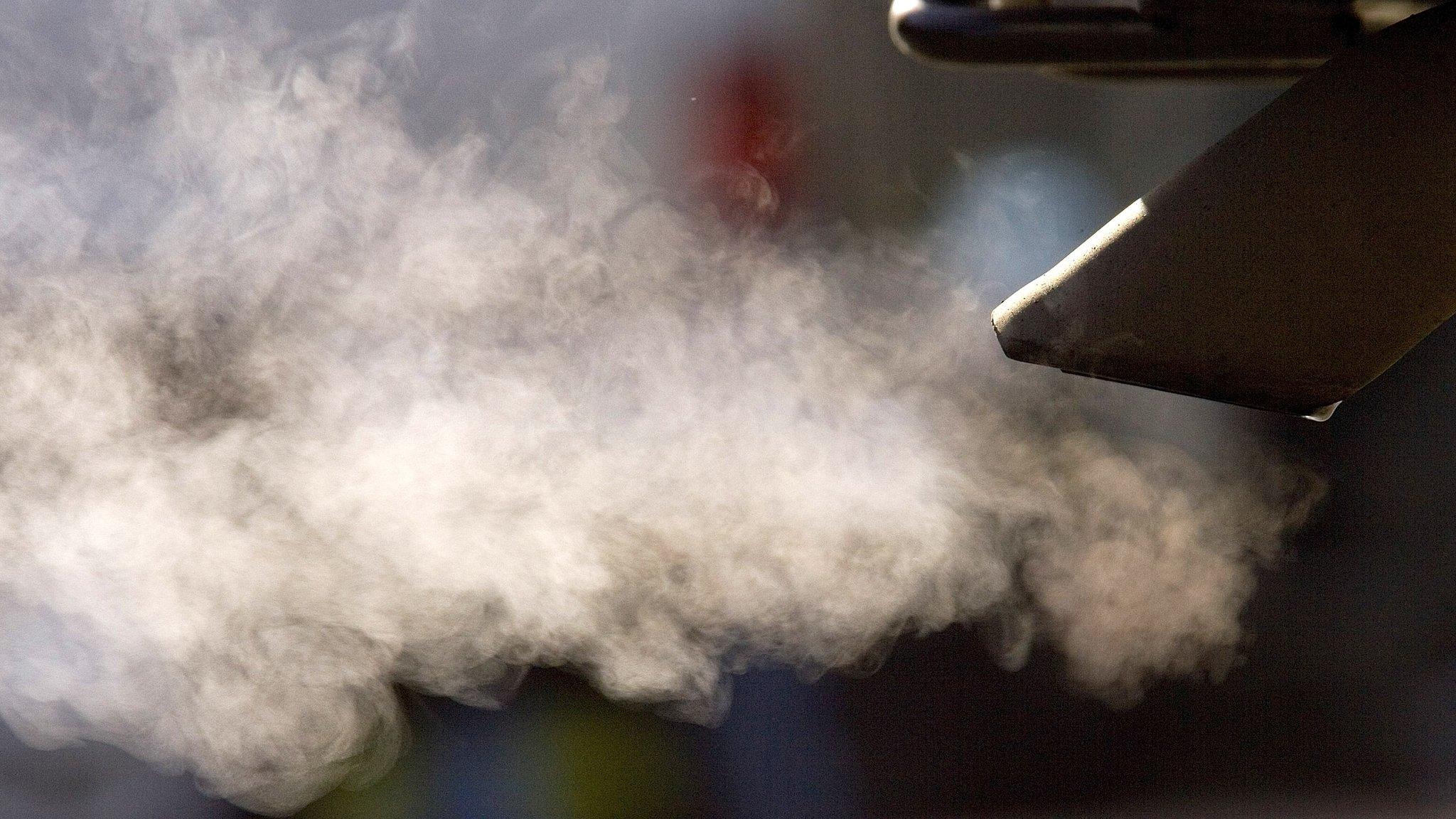VW scandal threatens 'Made in Germany' brand
- Published
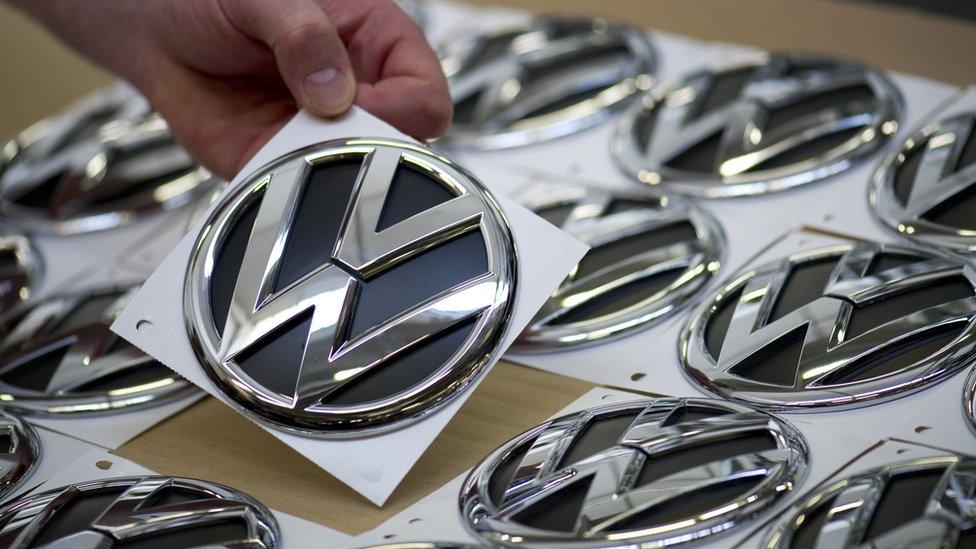
Cars and the environment - two things that Germany cares so deeply about that they form part of the national character.
So Germans are shocked to discover that for years the country's mightiest car manufacturer Volkswagen has been rigging environmental tests for diesel emissions in the US.
It's as if the British suddenly found out that the Queen had a hand in fixing the horse races at Ascot.
One German newspaper, external has called it the "most expensive act of stupidity in the history of the car industry".
Stupid because manipulating pollution data to boost sales can only be seen as a slap in the face to customers who paid a premium for what they thought was a greener car.
And expensive because €14bn (£10bn; $15.6bn) was wiped off VW's value within hours of the stock market opening on Monday morning. Since the company owned up, its shares have plummeted more than 30% in two days.
Added to that, the company could face €18bn of fines from US authorities and such damage to its brand that future sales are bound to be hit hard.
Volkswagen scandal
11 million
Vehicles affected worldwide
-
€6.5bn Set aside by VW
-
$18bn Potential fines
-
No. 1 Global carmaker in sales
It seems particularly egregious that VW is guilty of faking its green credentials, given that the company has been vaunting itself as environmentally conscious, and marketing its cars as "clean diesel". Powerful and better for the environment at the same time, was the message.
But drivers of almost half a million cars in the US have now suddenly found that they are driving round vehicles which are a lot worse for the environment than they thought. The rigged tests masked the fact that these cars emit up to 40 times the legal limit of pollutants.
And now VW has said that as many as 11 million cars worldwide could be affected.
The worry is that the scandal could have even wider ramifications.
In Germany a car is more than just a metal box on four wheels - as anyone who has been to Wolfsburg, the hometown of VW, knows.
In fact, with almost half the population working for the firm, the town is VW, with massive factories ornate as castles, and huge VW flags and signs wherever you look.
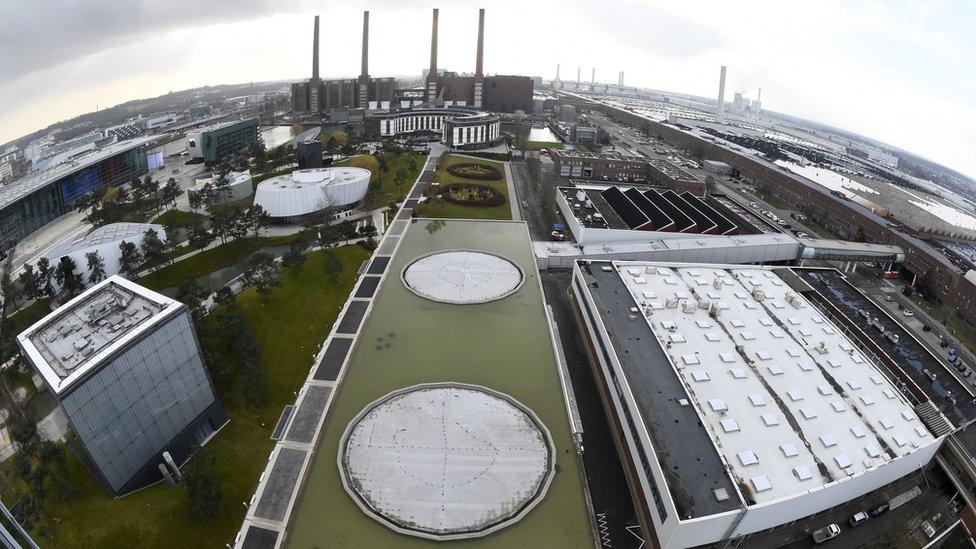
VW's assembly plant employs thousands of people in Wolfsburg
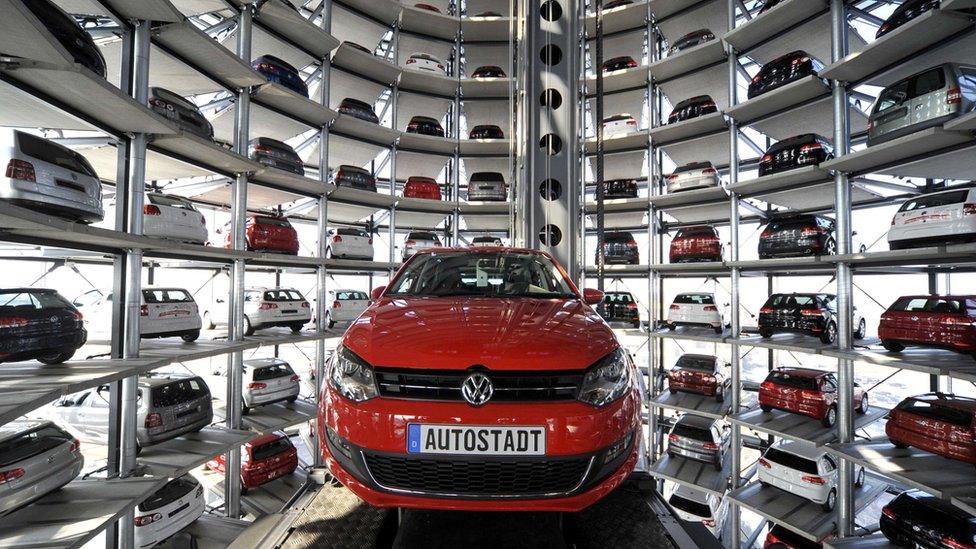
The Autostadt visitor attraction sits adjacent to the company's factory; it features two towers in which new cars are stored
That's because Germany is rightly proud of its cars - symbols of reliability, technical expertise and top engineering.
Symbols too of economic strength. Thanks to VW, Wolfsburg has the highest per capita salary in Germany.
And in the country as a whole, cars are among Germany's most important exports. According to one estimate, one in seven of all German jobs are in some way connected to the car industry.
But "Made in Germany" is supposed to be a quality trusted brand worth paying money for. If that image becomes one of manipulation and deceit instead, then it's only a matter of time before the impact is felt on the German economy.
The fear is that other German industries could also be contaminated by the scandal.
A lot of Germany's present economic success is based on engineering expertise, specialised technology and expensive heavy machinery sold to fire up China's factories.
Customers are prepared to pay over the odds for quality they trust.
The problem is that even if something like winning the World Cup can boost the reputation of all kinds of German brands internationally, then lying about a car's environmental credentials could well have the opposite effect.
- Published22 September 2015
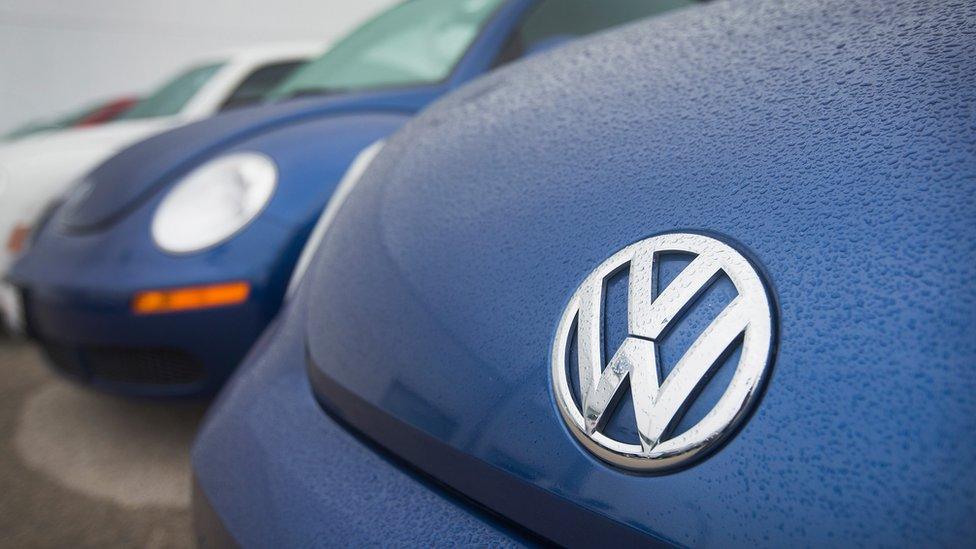
- Published22 September 2015

- Published18 September 2015
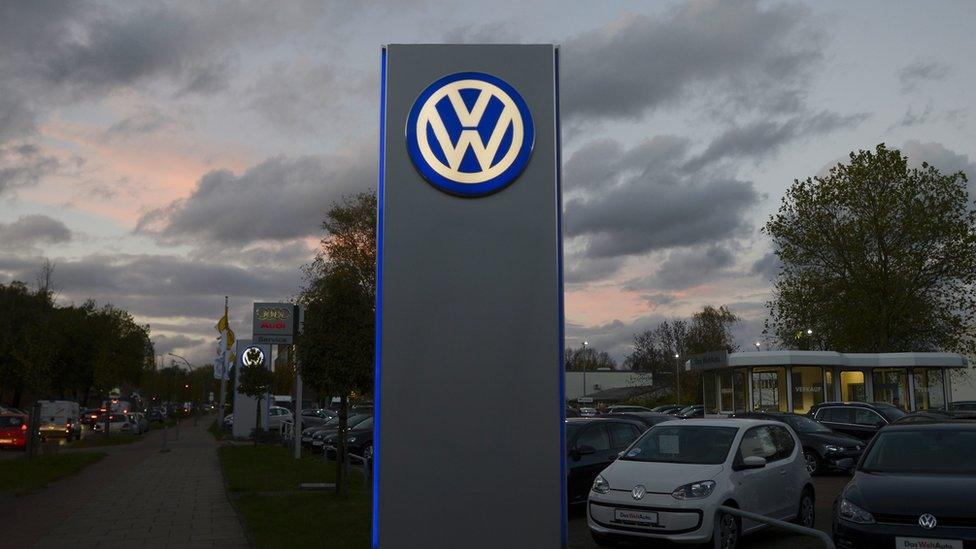
- Published16 September 2015
